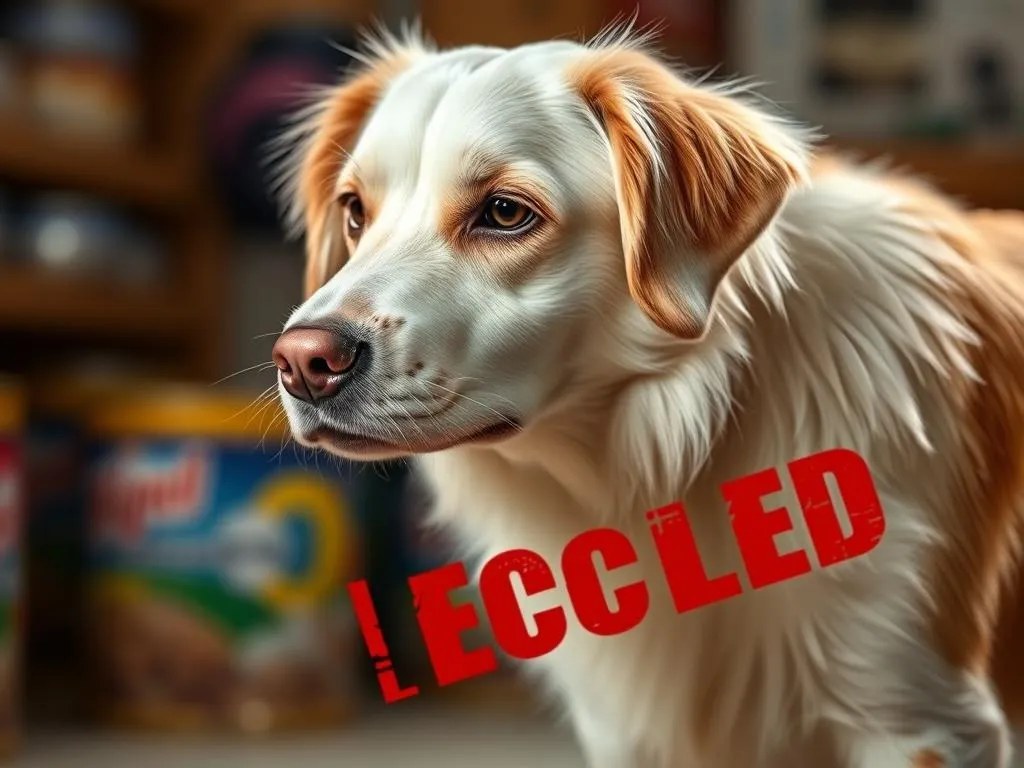
Introduction
Overview of Dog Nutrition
Proper nutrition is crucial for maintaining a dog’s health and overall well-being. Just like humans, dogs require a balanced diet that meets their nutritional needs based on their age, breed, size, and lifestyle. Providing the right kind of food can have a significant impact on a dog’s energy levels, coat condition, and longevity.
Different breeds and sizes of dogs come with unique nutritional requirements. For instance, larger breeds like Great Danes may need diets that support their bones, while smaller breeds like Chihuahuas often require higher calorie content in smaller portions. Adult dogs also have different needs compared to puppies and seniors, emphasizing the importance of tailored nutrition.
Purpose of the Article
The purpose of this article is to inform readers about dog food safety and highlight dog foods that have a clean recall history. Many pet owners are concerned about the safety of the food they feed their furry friends, especially given the prevalence of recalls in the pet food industry. By identifying brands that have never been recalled, you can make more informed decisions about your dog’s nutrition.
Section 1: Understanding Dog Food Recalls
What is a Dog Food Recall?
A dog food recall occurs when a manufacturer or regulatory body identifies a potential safety issue with a dog food product. This could be due to contamination with harmful substances (like Salmonella or aflatoxin), mislabeling, or the presence of harmful ingredients. Recalls are a safety measure to protect pets from potentially dangerous food.
Importance of Knowing About Recalls
Understanding dog food recalls is vital for pet owners. A recall can have serious health implications for dogs, leading to illness or, in severe cases, death. Knowledge of recalls allows you to act swiftly, ensuring your dog’s safety by avoiding affected products. It also highlights the need for transparency and accountability in the pet food industry.
Section 2: Criteria for Evaluating Dog Foods
Quality Ingredients
When evaluating dog food, one of the primary criteria is the quality of ingredients. Look for dog foods that include real meat as the first ingredient, alongside whole grains and vegetables. Avoid brands that use fillers, artificial additives, or low-quality by-products, as these can compromise your dog’s health. High-quality ingredients not only provide essential nutrients but also contribute to better digestion and overall well-being.
Manufacturing Practices
The manufacturing process plays a significant role in the safety and quality of dog food. It’s important to choose brands that follow strict manufacturing practices and are compliant with regulations set by organizations like the Association of American Feed Control Officials (AAFCO) and the Food and Drug Administration (FDA). Certifications from these bodies can give pet owners confidence in the safety and nutritional adequacy of the food they choose.
Brand Reputation
A brand’s reputation is also a critical factor in evaluating dog foods. To assess a brand’s standing in the market, consider consumer reviews, expert recommendations, and the history of any recalls. Brands that have consistently received positive feedback and maintained a clean recall history are often more trustworthy.
Section 3: Dog Foods with No Recall History
Defining “Never Recalled”
When discussing dog foods that have never been recalled, it’s important to clarify the criteria for inclusion in this list. A brand is considered “never recalled” if it has never faced a voluntary or mandatory recall throughout its history. However, it’s essential to keep monitoring these brands, as the recall history can change.
List of Dog Food Brands with No Recalls
-
Brand 1: Orijen
Overview of the brand: Orijen is known for its high-quality, biologically appropriate dog food, made from fresh, regional ingredients.
Key nutritional benefits: It contains high protein levels, with real meat and organ meat as primary ingredients, providing dogs with a balanced diet.
Customer reviews and testimonials: Customers rave about their dogs’ improved energy levels and coat condition after switching to Orijen. -
Brand 2: Acana
Overview of the brand: Acana, a sister brand to Orijen, focuses on providing a variety of high-quality, nutritious dog foods sourced from local farmers.
Key nutritional benefits: Acana’s recipes emphasize fresh, whole ingredients with a variety of meats and vegetables, promoting optimal health.
Customer reviews and testimonials: Pet owners often note the positive changes in their dogs’ digestion and vitality after using Acana products. -
Brand 3: Taste of the Wild
Overview of the brand: Taste of the Wild offers high-quality dog foods that mimic the natural diet of dogs, using real roasted meats and wholesome fruits and vegetables.
Key nutritional benefits: Their formulas are grain-free, promoting better digestion and less allergic reactions for sensitive dogs.
Customer reviews and testimonials: Many customers appreciate the brand’s commitment to quality and report that their dogs love the taste. -
Brand 4: Blue Buffalo
Overview of the brand: Blue Buffalo is recognized for its natural ingredients and a focus on holistic nutrition for dogs.
Key nutritional benefits: Their formulas include real meat, whole grains, and a proprietary blend of vitamins and minerals.
Customer reviews and testimonials: Customers highlight improvements in their pets’ health and energy levels after switching to Blue Buffalo. -
Brand 5: Merrick
Overview of the brand: Merrick is known for its grain-free and high-protein dog food options, using fresh, whole ingredients.
Key nutritional benefits: Merrick’s recipes are designed to meet the specific dietary needs of dogs, promoting overall health and well-being.
Customer reviews and testimonials: Many pet owners report noticeable improvements in their dogs’ weight management and coat health.
Analysis of Brand Practices
The brands listed above maintain high standards for safety and quality, which contribute to their clean recall histories. They often have robust quality control measures, source ingredients from trusted suppliers, and adhere to rigorous manufacturing practices. In contrast, brands with recall histories may have faced issues related to ingredient sourcing, processing, or inadequate quality control measures.
Section 4: Tips for Choosing Safe Dog Food
Researching Brands
When selecting dog food, thorough research is essential. Look for reliable information from trusted sources, such as veterinary clinics or reputable pet food review websites. Transparency in labeling is also important; choose brands that clearly list their ingredients and provide nutritional information.
Consulting Veterinarians
Veterinarians play a critical role in providing dietary recommendations for dogs. Schedule regular check-ups and discuss any dietary concerns with your vet. Prepare a list of questions to ask, such as what ingredients to prioritize or what specific dietary needs your dog may have based on their health status.
Staying Informed
Staying informed about pet food recalls is crucial. Utilize resources like official pet food safety websites or apps that track recalls. Additionally, joining pet owner groups and forums can provide insights and experiences from other pet owners, helping you make informed decisions about your dog’s nutrition.
Section 5: Common Nutritional Needs for Dogs
Basic Nutritional Components
Dogs require a balanced diet that includes proteins, fats, carbohydrates, vitamins, and minerals. Proteins are essential for growth and tissue repair, while fats provide energy and support healthy skin and coat. Carbohydrates are a source of energy and aid in digestion, while vitamins and minerals are necessary for various bodily functions.
Dietary Needs by Life Stage
Nutritional needs vary significantly by life stage. Puppies require higher protein and calorie content to support their rapid growth and development, while adult dogs need balanced nutrition to maintain their health. Senior dogs may require specialized diets to manage health issues like joint problems or weight management.
Special Dietary Considerations
Some dogs may have allergies or sensitivities to certain ingredients, necessitating a specialized diet. For dogs with specific health conditions, such as obesity or diabetes, it’s crucial to consult with a veterinarian to determine the best dietary approach.
Section 6: Conclusion
Recap of Key Points
Choosing safe dog foods that have never been recalled is vital for ensuring your pet’s health and safety. This article highlighted several reputable brands with clean recall histories, along with the criteria for evaluating dog foods and the importance of understanding recalls.
Final Thoughts on Dog Nutrition
Prioritizing your dog’s nutrition is essential for their overall health and longevity. By staying informed and making educated choices, you can help ensure that your furry friend receives the best possible care. Always remember to keep an eye on new developments in dog food safety and be proactive in making dietary choices for your pet.
Section 7: Additional Resources
While this section will not be included in the content, reputable organizations like the AAFCO and the FDA are excellent starting points for further information on pet food safety. Additionally, trusted books and guides on dog nutrition can provide deeper insights into feeding practices and dietary needs, while online pet food databases can help you keep track of recalls and safety information.









